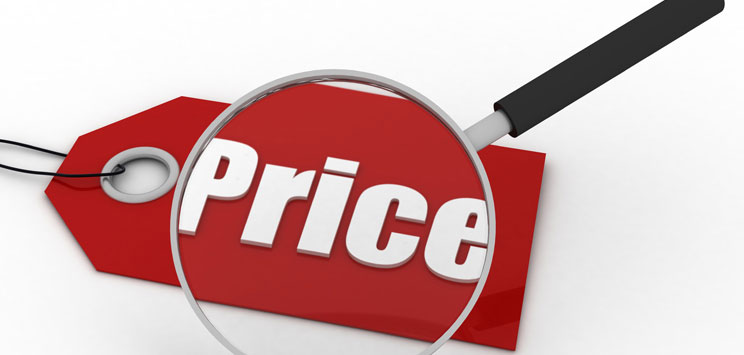
How Much Cash is Needed When Buying a Home?
By
If you’re thinking about buying a house and have never bought one before, you might be wondering how much money you need to buy a home. Most prospective homeowners understand that there is a bit of an initial investment, but are completely unaware of how much cash is needed to buy a house. Of course they know they need to have cash on hand for a down payment in most circumstances, but there is more required than just the down payment when it comes to buying a home. So how much money will you really need? Here are the primary up front costs associated with buying a home:
Down Payment / Funding Fees
Most types of home loans require a minimum down payment of 3.5% of the purchase price on a home (however, on FHA and Conventional mortgage loans, anything less than a 20% down payment will mean that you’ll need to pay an additional mortgage insurance premium in addition to your mortgage payment). Since we’re discussing the cash needed to buy a home, we’ll assume a 3.5% down payment (some Conventional loan arrangements will actually allow you to put down just 3%)– or $3,500 on a $100,000 home loan. Assuming a $150,000 purchase price, this means you will need a minimum down payment of $5,250.
If you are an eligible veteran, you will not have to pay a down payment if you are buying a home with a VA loan. For first time home buyers utilizing their VA loan benefits for the first time, you will need to pay a VA loan funding fee of 2.15% of the purchase price instead.
Earnest Money
You may have heard the term “earnest money” or “earnest deposit” when learning about mortgages and how they work. This is a fee you will pay up front– before the mortgage loan is closed– to show the sellers that you are serious about purchasing the property.
While this is an extra expense, it is actually included as part of your down payment. In most cases, an earnest deposit is equal to 1% of the home’s purchase price. So, for our $150,000 example home, the earnest money would equal $1,500. However, this will be deducted from your down payment that you’ll pay during closing. In this case, instead of paying $5,250 for a down payment at closing, you’d pay $1,500 as an earnest deposit when you sign your purchase contract and then pay the remaining $3,750 of your down payment at closing.
Inspections and Appraisal
During the course of processing your mortgage loan application, you’ll also be expected to foot the bill for certain home inspections and an appraisal. In most cases, you’ll only be responsible for a basic home inspection, which will identify things such as faulty electrical and/or HVAC systems, foundation issues, the presence of mold or water, etc. Other loan types may require additional inspections, such as the pest inspections required for VA loans. Most home inspections cost approximately $500, although they may be significantly more or less depending on the area in which you live.
When you’re purchasing a home, you’ll always be responsible for paying for an appraisal– a process in which a neutral third party comes in to assess the value of the home and property. A home appraisal usually costs about $350 on average, but like home inspections, the cost may vary based on your location.
In some cases, you may be asked to make the payments directly to the inspector or appraiser. However, in some circumstances, you may be asked to pay your lender for these services first, and then they will make payment to the appropriate parties when appropriate. You can expect to pay approximately $850 for these services, but as stated above, it could be a bit more or a bit less depending on the market you are in.
Closing Costs and Origination Charges
The average cost for closing and origination fees– or the fees the lender and/or title company charge to make and process the loan– is usually about 2% of the home’s purchase price. These fees are typically paid at your loan closing.
First time home buyers can often ask for seller concessions, and if the home seller is agreeable, they may foot the bill for some or all of the closing or origination fees. You’ll know whether or not your seller is amenable to this before your loan processes because your Realtor will ask for these concessions at the time you put an offer in on the property you wish to finance.
On our $150,000 example mortgage loan, assuming the seller doesn’t agree to pay the closing and origination charges, you’d be looking at approximately $3,000. However, this cost can vary significantly from lender to lender.
Taxes
One thing first time home buyers often forget is that they will have to pay some of their property taxes up front when purchasing a home. Since property taxes are prorated, a home buyer should plan on paying somewhere between one and six months of property taxes up front on their property when they buy a new home. In some circumstances, the home buyer may get lucky and be able to take advantage of the current homeowner’s tax payments– meaning that they may not have to pay anything toward taxes upon move-in if the current homeowner has recently paid them.
As a worst-case scenario, the new home buyer will have to pay six months of property taxes up front. The amount of property taxes varies significantly depending on the location of the home. According to CBS News, the average homeowner shells out just under $2,100 a year for property taxes– so we’ll use that as our benchmark for our estimate: about $1,050 for six months of property taxes paid up front.
Homeowners Insurance
You’ll also have to take out a homeowners insurance policy when you buy a home, as this is a requirement of every mortgage loan type in order to process the loan. The average homeowner in America pays about $1,000 for an annual homeowner’s insurance premium– but this amount varies drastically depending on the location, value, and other considerations of the home.
Reserved Savings
In addition to paying all of the up front fees associated with buying a home, your lender will also want to make sure that you haven’t completely exhausted your cash on hand before they’ll give your loan final approval. In most cases, you’ll need at least three to six months of mortgage payments (principle and interest only– not including HOA fees, taxes, etc.) left in the bank. For our $150,000 home example, this means you’d probably need a minimum of approximately $2,500 left in your checking or savings accounts after closing. While that cash will remain yours, it’s still important to note that you’ve got to have it in savings in order to close the loan.
The Grand Total
All things considered– and assuming that the home’s current owner won’t be paying concessions on your closing or origination fees– for this $150,000 loan example, you’d need approximately $13,150 in cash to close your loan without a hitch. Does that mean you couldn’t close the loan if you’ve only got $10,000 saved? Or $9,000? Not necessarily. You definitely want to talk to your lender about it, as there are often work-arounds that can be utilized for some of the fees associated with home buying.
Not sure if you’ve got enough saved? Give NLC Loans a call toll-free at 1-877-480-8050 and speak to one of our licensed Personal Mortgage Advisors with zero obligation. They’ll be able to look at your individual situation and let you know where you stand on potential home ownership.














 newsletter no longer available
newsletter no longer available